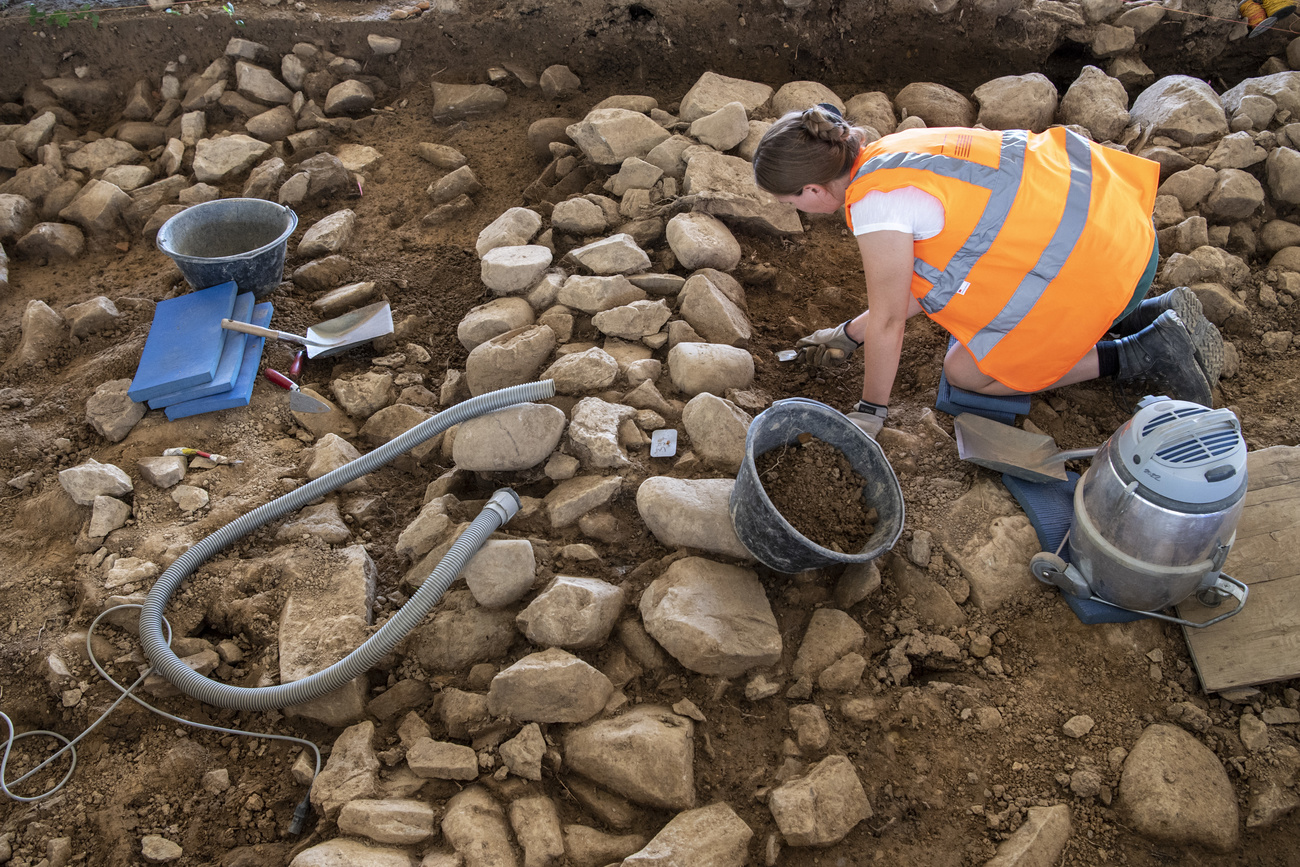
2000-year-old Roman walls discovered in Swiss canton Zug

Remains of the walls of a Roman building complex built around 2000 years ago have been discovered in a gravel pit in Cham, a municipality in canton Zug. According to the canton's Office for Historical Monuments and Archaeology of canton Zug, the discovery is "a sensation".
Such a discovery is “extraordinary”, as there are very few known remains from the Roman era in the foothills of the Alps. The last such find in canton Zug was almost 100 years ago, said Gishan Schaeren of the cantonal archaeology service on Tuesday.
The complex is believed to cover an area of 500 square metres. The walls were only a few centimetres below ground. The archaeologists also found fragments of wall plaster.
Everyday objects such as bowls, millstones, glass containers, crockery and amphorae were unearthed. The specialists also discovered large quantities of iron nails and a fragment of gold that may have been part of a jewellery setting.
++‘Exceptional’ Bronze Age artefacts unearthed in Switzerland
“At the moment, we’re wondering what this complex of buildings was used for,” said Kathrin Rüedi, from the Historical Monuments and Archaeology Service. It could have been a villa, an inn or a temple. Further research could help to answer this question.
This news story has been written and carefully fact-checked by an external editorial team. At SWI swissinfo.ch we select the most relevant news for an international audience and use automatic translation tools such as DeepL to translate them into English. Providing you with automatically translated news gives us the time to write more in-depth articles. You can find them here.
If you want to know more about how we work, have a look here, and if you have feedback on this news story please write to english@swissinfo.ch.

In compliance with the JTI standards
More: SWI swissinfo.ch certified by the Journalism Trust Initiative




























You can find an overview of ongoing debates with our journalists here . Please join us!
If you want to start a conversation about a topic raised in this article or want to report factual errors, email us at english@swissinfo.ch.